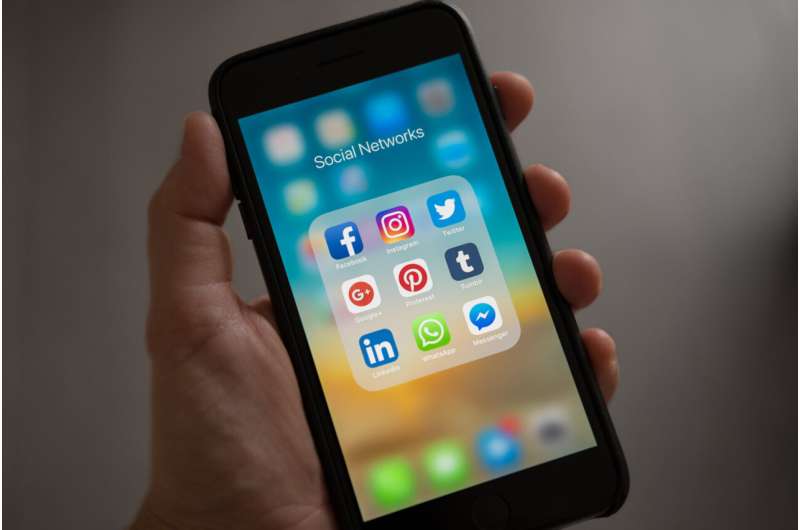Google and Facebook won't rule the world – if we don't buy their fantasies about big data

From micro-targeted advertisements to Russian social media sleeper agents and doorstep canvassers armed with conversation scripts based on personality profiles, data-driven tools and techniques appear to be providing increasingly intimate and aggressive ways of engaging, persuading and manipulating voters.
Revelations from the Cambridge Analytica scandal have seemingly confirmed a growing suspicion that big data, combined with social media, is a powerful recipe for influencing public opinion. Data, we are told, has "hijacked democracy" – and, if left unchecked, could destroy it entirely.
But what's most interesting, from my perspective as a social anthropologist, are the fears and fantasies about the power of data analytics this ongoing saga has unearthed.
All too simple
Journalists, academics and whistleblowers have all done important work to raise public awareness of the Stasi-like politics of mass data collection. Yet some claims go too far, portraying data as all-powerful and social media users as utterly powerless.
Claims that big data and targeting will determine the next US president, and fears that data analytics allow politicians to exploit our psychological vulnerabilities have at their root a deterministic view, which sees social media users as completely passive and open to manipulation. But this view ignores how users actively process information, with differing perspectives, interests and forms of engagement.
Paradoxically, while the data-driven advertising industry increasingly recognises the diversity of internet users' psychological profiles and behavioural patterns, it seems to assume that they are all equally suggestible when it comes to social media advertising.
The real winners
Social media platforms are, as usual, the winners here. Facebook's research team has long produced self-aggrandising publications affirming the company's ability to manipulate and influence their users. Facebook needs people to believe in the power of data, so that it can continue to sell advertisers access to its users. The company even has a dedicated political advertising sales team, charged with convincing politicians that Facebook does have the kind of influence needed to alter the outcome of elections.
While Facebook copped a few weeks of bad press following the Cambridge Analytica scandal, claims that big data is a threat to democracy simply mirror Facebook's fantasies of itself as some kind of total archive. By reproducing and confirming the fantasy that big data can be leveraged to affect the outcome of elections, claims like this become something of a self-fulfilling prophecy: the more hype and hope surrounding data-driven social media campaigns, the more politicians and advertisers will invest in them.
As a result, more people will come to be "influenced" through these methods, not because they are innately powerful or insightful – indeed, it's not at all clear how well targeted ads actually work – but simply because they are widespread.
Data fantasies
Even if it is difficult to prove or disprove how effective data-driven campaigns actually are, it is undeniable that data analytics increasingly represents a powerful and pervasive way of understanding human behaviour and society. Anthropologists have long explored how, in the different belief systems of human societies around the world, inanimate objects and nonhuman entities—like "data—can take on fantastic, fetishistic, or even magical properties.
Claims like "Your computer knows you better than your friends do", or "Our search engines know our deepest fears" present data as the all-telling essence of our virtual lives. Google and Facebook become all-seeing prophets. Their data centres morph into a palace of dreams, where our hopes, fears and deepest desires are collected, dissected and then repackaged back to us in the form of ads that are supposedly so well targeted that we are powerless to withstand their effects.
With all the hyperbolic rhetoric surrounding big data, it is easy to forget that the data profiles stored on corporate server farms are exactly that – profiles – and profiles are always incomplete.
This doesn't mean we can relax. Quite the opposite: we need to think carefully about the increasing power we attach and cede to data, given its flaws, assumptions, biases and blind spots. Perhaps far more likely than a dystopian future driven entirely by ruthlessly hyper-accurate data analytics, is a future driven by a flawed, biased and broken big data machine.
Powerful commercial imperatives depend on people mistakenly believing that their data profiles are a true representation of themselves, and that data analytics have the power to determine aspects of social life. Sensationalist narratives of data determinism inadvertently help further this agenda. Data will no doubt come to play an increasingly dominant role in more and more areas of everyday life – not because it is particularly insightful or meaningful, but because we collectively believe this to be so. If this faith in data should flounder, then so too may its hold on the future.
This article was originally published on The Conversation. Read the original article.![]()




















